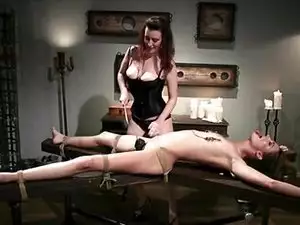Duty And Duplicity; Book 5 Of Poacher's ProgressChapter 10: The Congress Of Verona free porn video

The Congress of Verona formally opened on the 10th of October 1822.
The opening was a display of pomp, and military might, of the attending powers, although only Britain was represented by a successful general.
There were interminable speeches by the head of each delegation, the longest and most boring by Alexander, Tsar of All the Russians.
He spoke in French, which is the language of choice for Russian aristocrats, and vowed to bring Europe back to before the advent of what he referred to as ‘Jacobinism’ and the Tyrant Bonaparte. His speech was met by thunderous applause from all delegates, other than the British.
The Duke of Wellington had previously given a brief, but succinct, speech in which he warned of upheaval in Europe unless the rulers followed the example of the United Kingdom in the matter of governance.
I heard shouts of ‘Qu’en est-il de l’Irlande?‘ from the French delegation, and I suppose they had a point.
By the beginning of November I was bored to tears with sitting as an observer at the many subcommittees to which Ferdi dispatched me.
Otto was no less bored; in fact he was as morose as I had ever seen him.
He had little reason to be so miserable for he was bedding the maids at the Villa Agostino on a regular basis. His room was next to mine, and I wondered how his stamina, and the frame of his bed, held up under the nightly, mighty, demands made on them.
As most of the dickering and horse-trading between France, Austria, Prussia, and Russia, concerning the ‘Three Questions’, viz: The Greek, The Italian, and The Spanish, had been determined before the Congress assembled you might ask why the great and the good of Europe would spend so much time in Verona, a question I put to Ferdi.
“Communiques, Jack,” he said, and noting my puzzled expression he explained.
“Every official communique has to be scrutinised by a committee comprising of five eminent grammarians, one from each of the participating countries, before being issued. Every comma, full stop, subordinate clause, gerund, adverb, adjective, hanging participle and other esoteric points of grammar long since forgotten by most of us, will be pored over, ensuring there is no ambiguity.”
He gave a wry smile. “An impossible task, especially when you realise communiques are published in English, French, and German. It can take several weeks for a communique to go through the examination procedure, and even then points have to be clarified.”
“So the length of time of a Congress takes is in direct proportion to the number of communiques issued?”
He shook his head. “Not always. The Congress of Vienna dragged on because of boundary disputes. The delegates would probably still be in session if Napoleon had not escaped from Elba, and sent them all scurrying back to their threatened home countries.”
“Other than we British,” I said sternly.
“Obviously, Jack,” he smiled, and continued, “This congress is now more of a meeting of interested parties arranging trading and financial deals. Our mutual friend Claudia has her associates working with the Prussians. She hopes to be a partner with the Hanseatic League, although the glory days of that trading establishment are long gone.”
He gave a chuckle. “I recall something Claudia said at the Congress of Vienna, just as the news reached us of Napoleon’s escape. She said something to the effect, ‘Napoleon, by imposing one language, one currency, and one law within the boundaries of his empire, allowed trade to flow smoothly and efficiently. This ensured swift overland transit of goods from the Mediterranean to the Baltic, and throughout Europe. If he succeeds in regaining his throne he will be able to reinstate that European-wide market. Every continental merchant and ship owner would welcome him back with open arms if he did.’”
“What, Claudia would like to see all Europe under one ruler?”
“I think she would rather see all Europe under one trading association, Jack, rather than under one ruler.”
“Heaven forbid such an occurrence, unless the association was based, and administered, in London of course.”
“Naturally; though I doubt we need worry over such a far-fetched scheme ever being put into practise.” Ferdi said, and clapped me on the shoulder.
I was not always attending committees or writing reports.
Sometimes Claudia would act as my guide around Verona, and its many fine museums and churches.
As in Firenze she gave me the benefit of her extensive knowledge, but, alas, not of her body.
I had eventually met the woman who shared Claudia’s bed every night.
Monique Keunsberg was several years younger than Claudia, and a blonde haired, blue eyed, German mädchen; a small statured, voluptuous package, with a prominent bosom counterbalanced by magnificent buttocks.
Monique was an opera singer of some repute, her voice a melodic soprano, almost a mezzo-soprano, with the volume one would assume given her large bosom.
She would spend some nights away tending to her lover Horst Wessel, but she and Claudia would appear at breakfast most morning, surrounded by the superior air of two lovers fully satisfied and satiated after a night of coupling. It was plain they adored each other, and curiously I felt no animosity, anger or even jealousy towards Monique, who had a throaty speaking voice, and a mischievous chuckle. She also had a retentive memory, as she was trained to remember both lyrics and musical notation of the operas she performed.
One morning Claudia appeared at the breakfast table alone. Monique had been summoned to attend a private dinner with Horst Wessel the evening before, and had not yet returned from his bed.
It was well past noon before Monique appeared at the Villa Agostino, and Claudia quickly whisked her off to her boudoir.
Otto and I were in my room, writing a report concerning the Russian Imperial Guard regiment in Verona.
Otto had made friends with a brace of young lieutenants, and accompanied them on their drinking and fornicating escapades, of which there were many. During these evenings he would surreptitiously question the officers on the efficiency and effectiveness of their superior officers, and their men. The answers Otto garnered were not flattering to either, which Horse Guards would be pleased to know.
Otto had now befriended some Prussian officers, and was employing similar methods to discern the efficiency, or otherwise, of their army as had worked so well with the Russians.
There came a knock on the door of my room and on my ‘Come in’, I was surprised to see Claudia, thinking she would have spent more time in welcoming her lover home.
“Monique has some information you might want to hear, Giovanni. She is in my withdrawing room, where you will find quill, ink, and paper.”
I left Otto to his report and joined Monique, where she told me a most interesting tale.
She and her lover, Horst Wessel, had attended a discreet private supper party the previous evening to celebrate the successful conclusion of France and Austria’s diplomatic activities at the congress, and to bid farewell to Pierre de Montmorency-Laval, the French Minister of Foreign Affairs, and head of the French delegation, who was returning to Paris the next day.
Also present were François-René de Chateaubriand, Laval’s deputy, now head of the French delegation, and Prince von Metternich, Chancellor of State, and head of the Austrian delegation, all three accompanied by courtesans from Venice, a city renowned for the most accomplished whores in all of Europe.
Monique, blessed with a retentive memory, took in all these important men had said. The men had spoken in French, and although Monique was born in Vienna, she had a French mother, and French was her second language, German being her first, and thanks to having read the librettos of many Mozart operas, Italian, or at least the version spoken in the Northern states of Italy, her third. She was able to give me an almost verbatim report of the conversation at the supper table, which I duly wrote down, in mounting astonishment.
The conversation had started with Montmorency-Laval, saying how glad he was to be returning to Paris, and then asking if any of the other diners had met the late Lord Castlereagh’s brother, who had newly arrived in Verona from Vienna to assume the head of British delegation after Wellington’s return to London a few days previously.
“Charles Vane, Third Marquis of Londonderry, is the late Lord Castlereagh’s half-brother,” Metternich said. “His arrival is a symbolic gesture on part of the British government, and he will take no part in any future discussions. Wellington has said and done all that the British wish to say and do.”
“Do you think his half-brother will be a suitable replacement for Lord Castlereagh in our plan for influencing the English establishment?” Chateaubriand asked.
Metternich shook his head “No, Francois. The man has all of the vices of those in his station in life, but they are well known to the British public, and he does not have the stature, or position, his late half-brother held in politics. If confronted by a blackmailer he would probably echo the famous saying of his hero, the Duke of Wellington.”
The duc de Montmorency-Laval raised an eyebrow. “And which particular one would that be? Wellington has many aphorisms attributed to him.”
“Publish and be damned.” Metternich said. “Surely, Pierre, you know of the retort Wellington made when threatened with blackmail. However, we do need to find another in the English establishment who we might bend to our will as soon as possible; Castlereagh’s death is a severe blow to our plans.”
“Well, the Italian Project was cancelled, so our scheme did achieve its end,” Laval said.
“I believe Klemens hoped to influence British government thinking, via Castlereagh, for a longer period, and with more tangible results than merely the cancellation of something viewed by many in the British government as a pipe dream.”
Metternich nodded his head. “You are correct as usual, Francois. Castlereagh’s suicide has effectively brought our machinations to an end.”
“Does ‘our friend in high places’ have another person in mind who could be persuaded to do our bidding?”
“I am waiting to hear from him, Pierre. Meantime I shall contact ‘our English friend in Italy’ and have him devise a scheme to envelop our next assistant.”
“You mean our next victim, Klemens,” Horst Wessel said.
They all laughed, and then each man poured himself a glass from the decanter of brandy set on the able, between fondling the expensive and experienced courtesans sitting with them.
“Where exactly is ‘our English friend in Italy’ at the moment, Klemens?” Chateaubriand said, after transferring his mouthful of brandy into the mouth of the harlot on his knee.
“The last I heard he was in Genoa, ‘gebumse’ the widow of his best friend.”
Laval allowed the girl sitting -- squirming -- on his lap to drink from his glass, then said. “I suppose the expertise of Eugene will again be utilised? The English are such prudes and hypocrites it is almost too simple to ensnare them.”
Metternich nodded “Yes, our English friend in Italy will contact him when needed. Now, let us finish this conversation and adjoin to the boudoirs, and take advantage of the skills of these luscious ladies from Venice.”
“Monique is from Vienna,” Horst said, giving her a slap on her ample rump.
“So fortunately none of them speak French,” Klemens remarked, and put his arm around the slender waist of his sultry eyed companion.
- 27.07.2022
- 45
- 0




























































